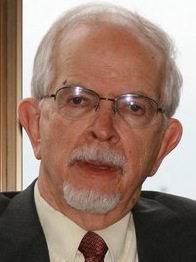"He said he got through it with the help of friends from the American Embassy in Tel Aviv who 'stayed with me, and hugged me when it was over.'"
After those reassuring hugs in Tel Aviv, newly recruited Israeli citizen Oren has dutifully adhered to whatever script his Tel Aviv bosses dictate, which is what an ambassador is supposed to do.
Oren's background and his intense loyalty to his new country, provide the right mix of Zionism and American savvy which Israel needs as pressure builds on Israel to finally embrace the democratic ideals it claims to possess.
Ambassador Oren has yet to weigh in on the German Nobel prize winning author Gunter Grass episode.
But rest assured, if Time and Newsweek had not adhered to the Zionist script when reporting on the "furor" over the Grass poem, This Must be Said, Oren would have been all over the editors of those leading national weeklies.
Those two publications already knew how to respond. They joined with the international media mob that presented the Grass story as a battle between the righteous Israeli government and a "Nazi-tainted" Grass.
To Israel and the media mob that covered the story, the fact that Grass, as a 17-year-old soldier entered the SS, rules him ineligible to criticize Israel.
The Time and Newsweek stories followed the script by omitting the central point of This Must Be Said, the fact that a prominent German author chose to risk his public reputation by writing and publishing a poem that reveals in public, that which is not to be said.
Israel has built a nuclear arsenal that contains between 200 and 400 deliverable nuclear bombs.
This arsenal was developed in secret with no outside inspection, exactly the same inspection the West is demanding Iran allow as it develops its own power-oriented nuclear program.
That was obviously the big news out of the Grass poem. Instead the media mob focused on whether or not Grass had written a "good poem" (overnight, journalists have become art critics?), or whether Grass had, like many young men of his generation, served in an SS unit.
The lead to the Grass story is the fact, which news reports and analysis still refused to acknowledge, namely, the revelation by a prominent German artist, that Israel has conspired with the rest of the world to hide the fact that it is a major nuclear threat to world peace.
At the moment, US public opinion is still far behind the rest of the western world, though elites -- those who run and shape media, politics, and religion -- in the US and elsewhere, remain largely under the spell of Zionism.
Ambassador Oren's job in Washington is not as difficult as the task facing Israel's European ambassadors who must explain Israel's conduct to a growing dubious public.
Nicholas Kulish began his New York Times analysis with this description of the growing division between elites and the general German public.
(Note: You can view every article as one long page if you sign up as an Advocate Member, or higher).






